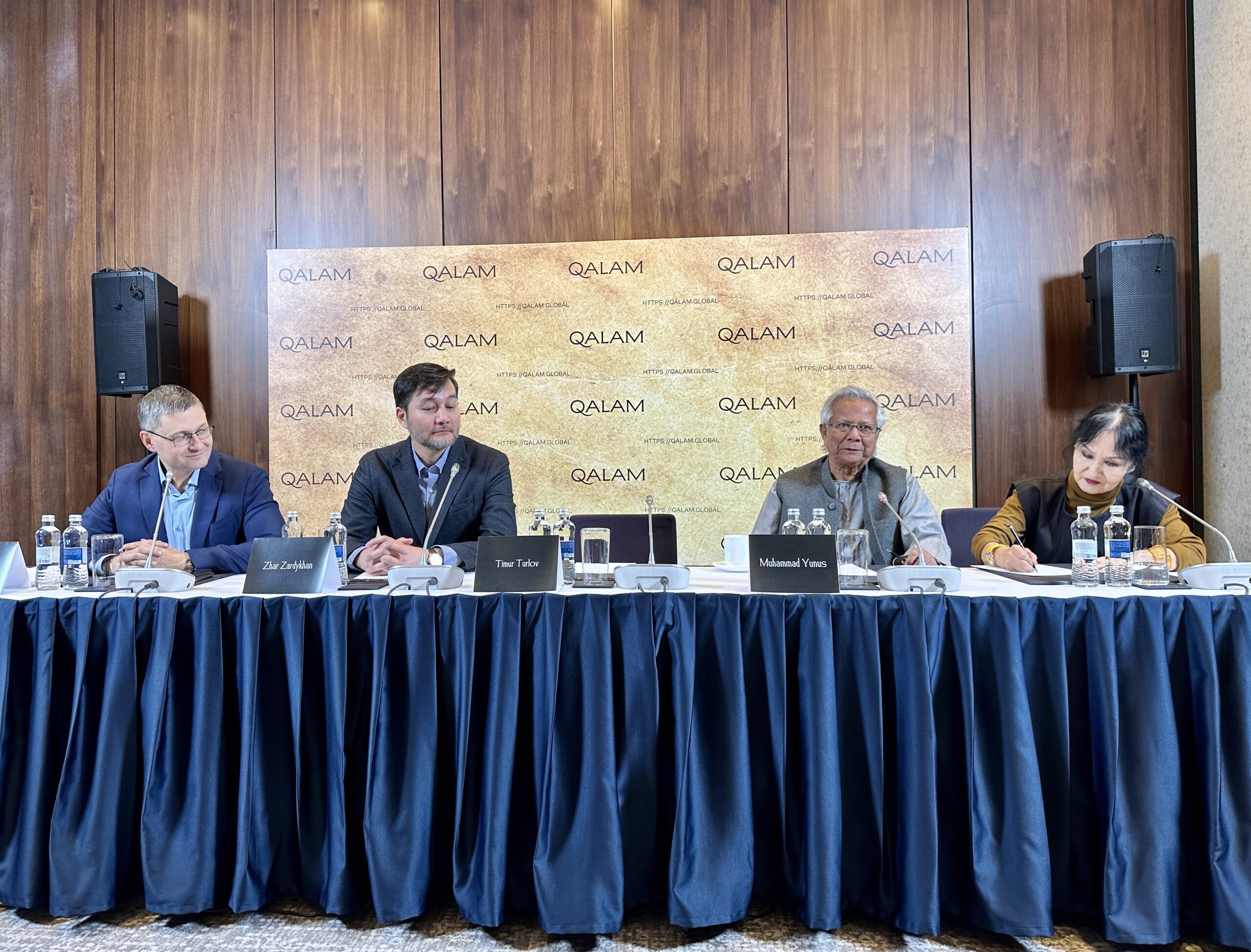ASTANA – Qalam, a new online historical and educational platform, offers wider access to Kazakh and Central Asian history, making it easier for audiences to engage and interact with materials, said the editor-in-chief and historian Zhar Zardykhan during the presentation on Dec. 19 in Astana.

Editor-in-Chief Zhar Zardykhan (second left) along with an honourable guest – Nobel Peace Prize laureate, Economics Professor Muhammad Yunus. Photo credit: astanatimes.com
In the absence of consistent access to museums and libraries, online platforms play a pivotal role in delivering reliable content prepared by professional historians, writers and journalists worldwide.
“Since our project is online, we want to give school students and people who are interested in the history of the country, the regions and the world an opportunity to access information. It is well known that not every place has libraries and not all materials could be available to them,” said Zardykhan.
“Presenting the materials in the Kazakh language is another important objective for us. We know that, for example, there is a lot of material on the history of Kazakhstan, but sometimes there is not enough Kazakh material on world history or on the history of Asia,” he added.
The project’s primary focus is on the past of Kazakhstan and the Central Asian nations, however, global history is also covered. The materials are published in Kazakh, Russian and English. In addition to texts, there are podcasts and video materials, also trilingual.
“We were interested in participating in a project that would tell about the history through the eyes of Central Asia, of our country. It was important to us that local history be reinterpreted and shown not only from European, not only from Russian, not only from Eastern states’ [perspective],” said the founder of the project, businessman and owner of the Freedom Holding corporation Timur Turlov.
“Central Asia has a rich culture, it is a big important part of the Silk Road, it has a thousand-year history. For us, this project is an opportunity, with the help of a talented team of both historians and journalists, to be able to further reveal the beauty and explain it in a simple and understandable language that is spoken by today’s news readers, so that this history can be read by our children so that we can read it ourselves,” he added.
Among the authors are historians from Canada, China, France, Great Britain, Kazakhstan, Kyrgyzstan, Mexico, the United States and Uzbekistan, among other countries.
“Qalam means a pen, originally a writing stick. This word is understood in many languages. Mankind has existed for hundreds of thousands of years, but civilization, our world, was born the moment someone wrote the first letters with a stick. This happened around 5,000 years ago and was the greatest technological revolution in history. That revolution happened in Asia, but today it is not Asia that dominates the picture of the past. We want to look at the history of the world not from London or Paris, as we used to, but from here, from the heart of Asia,” said Zardykhan.
The team also plans to create a section for schoolchildren and teachers as well as launching publicly accessible history lectures in various regions of the country.
The platform is accessible here.

